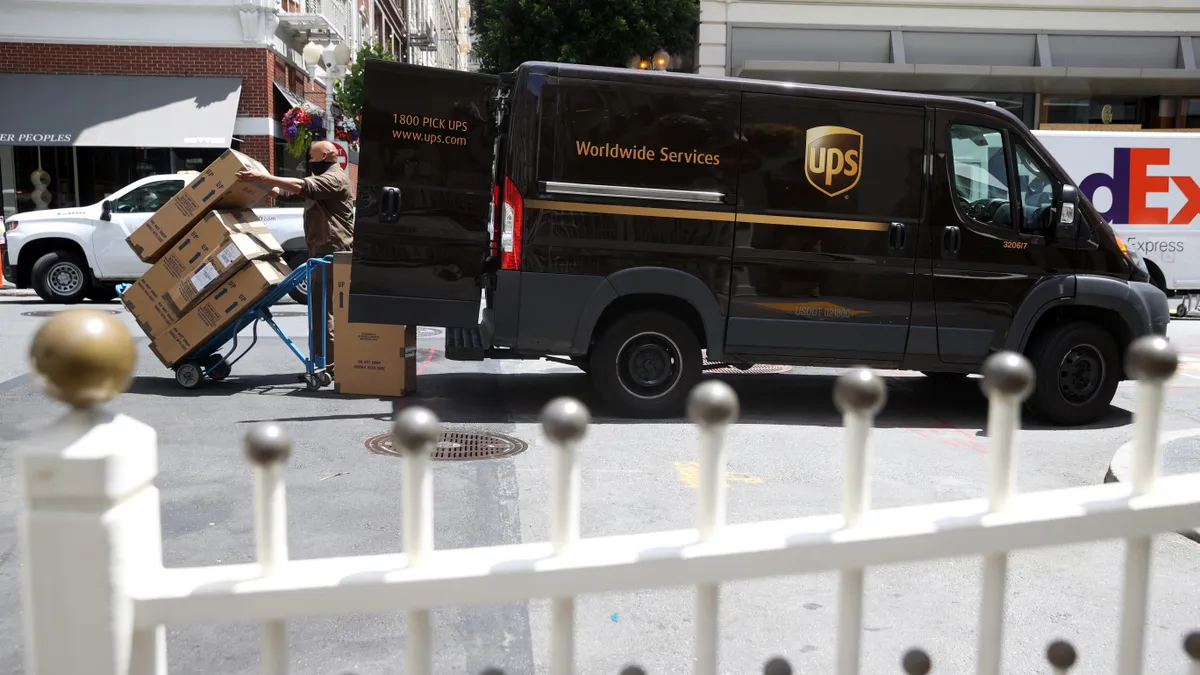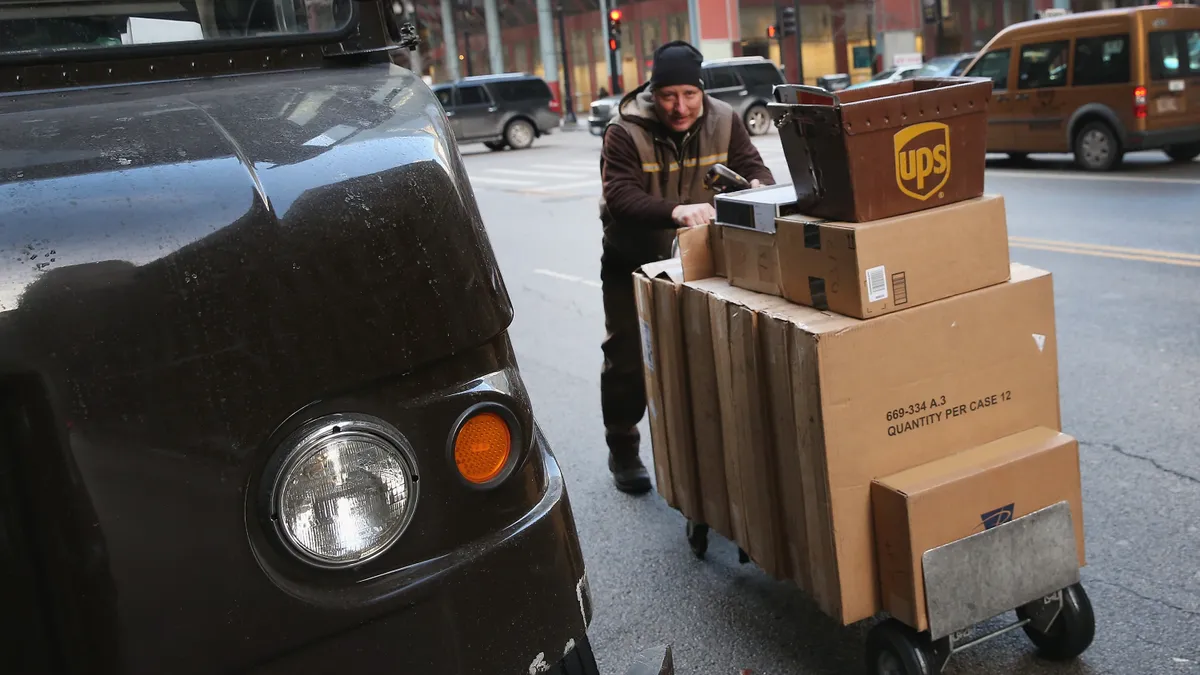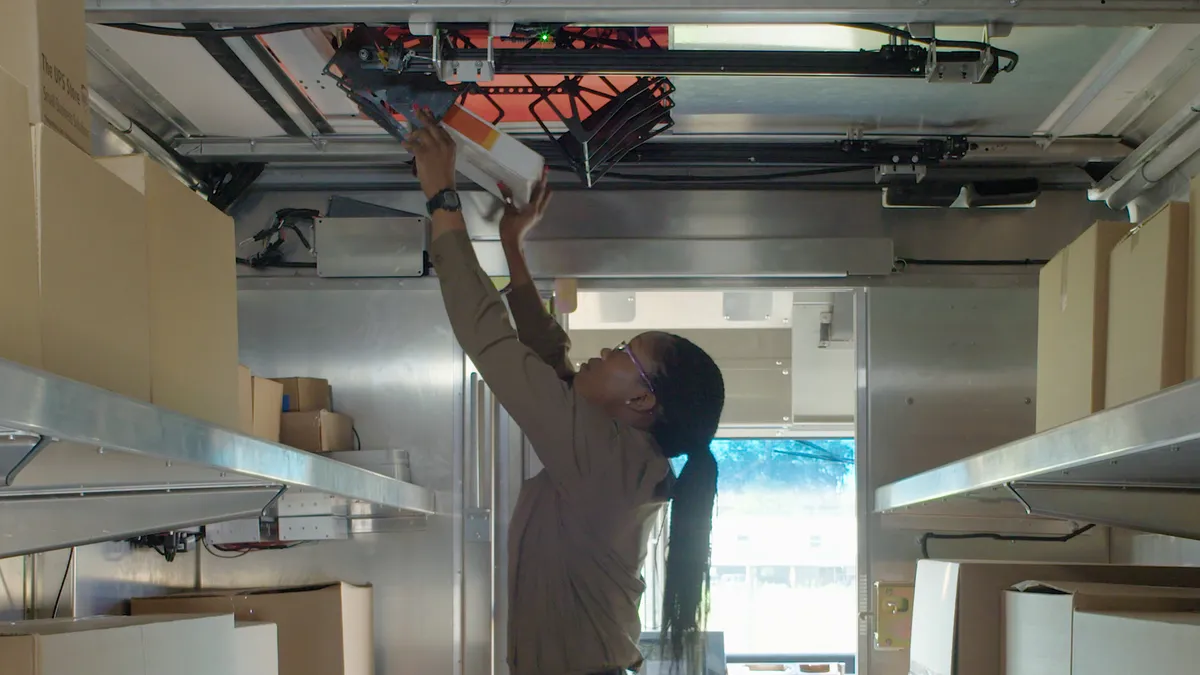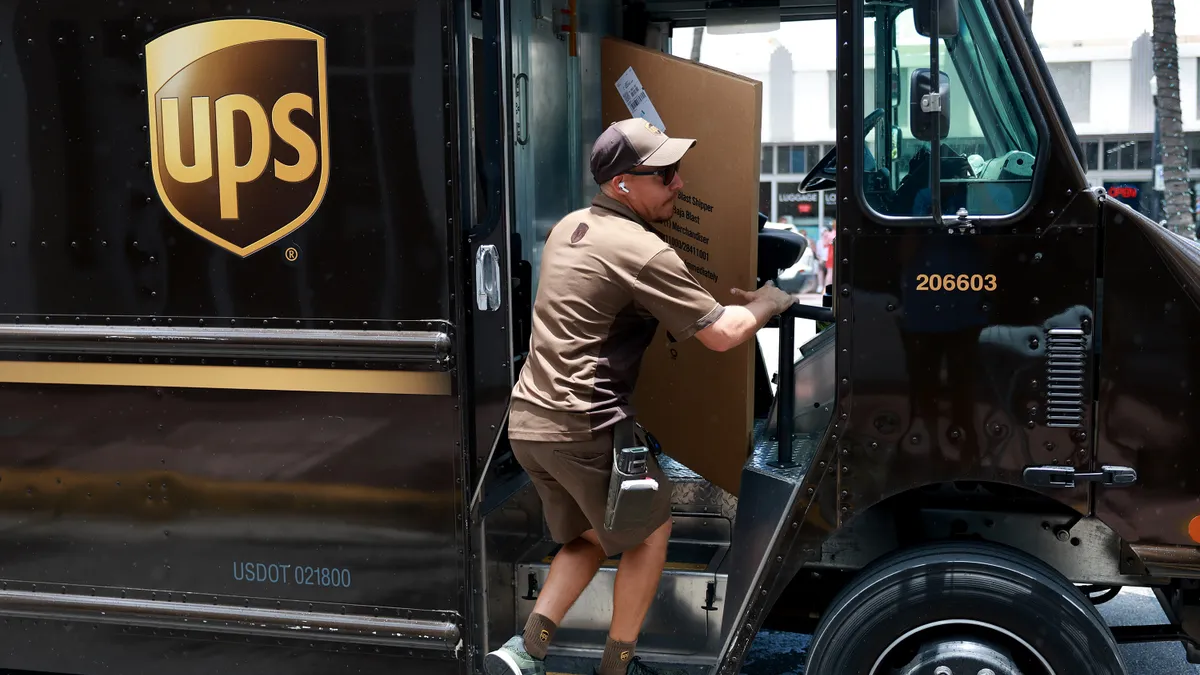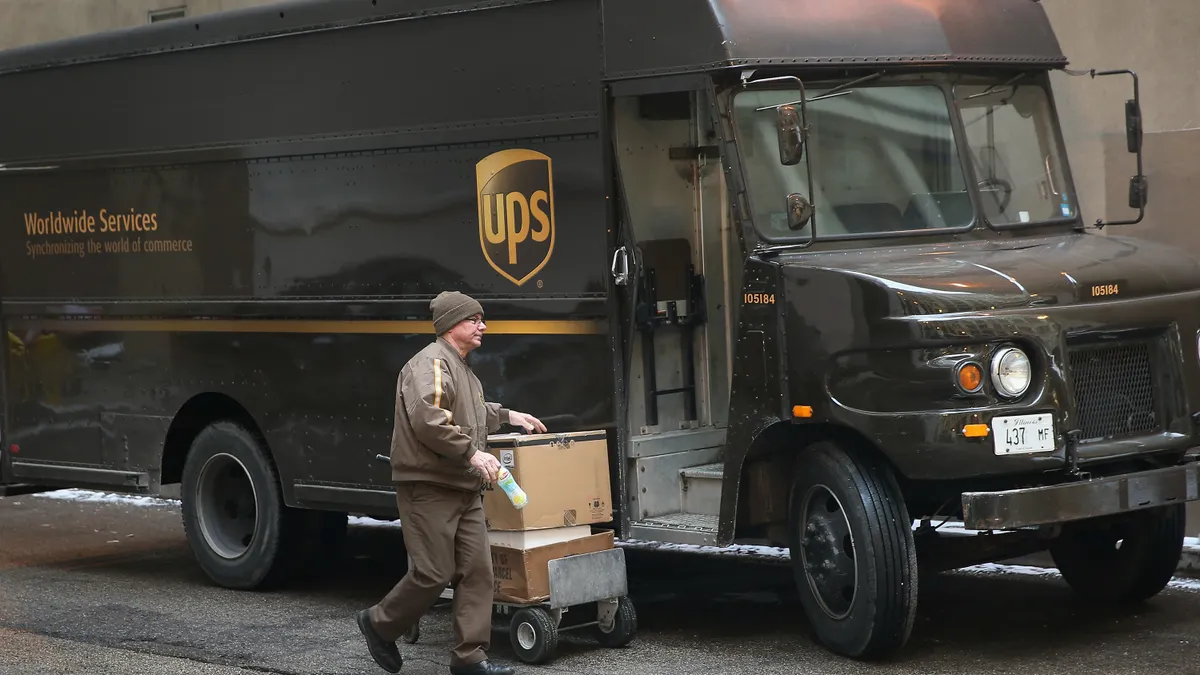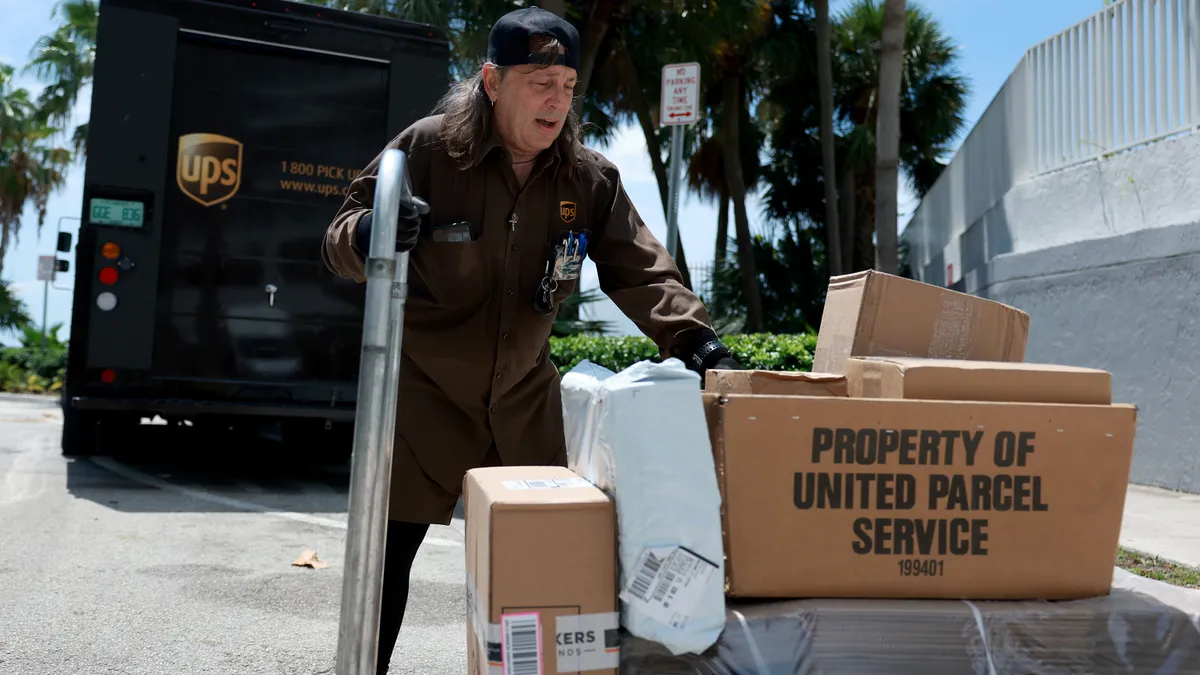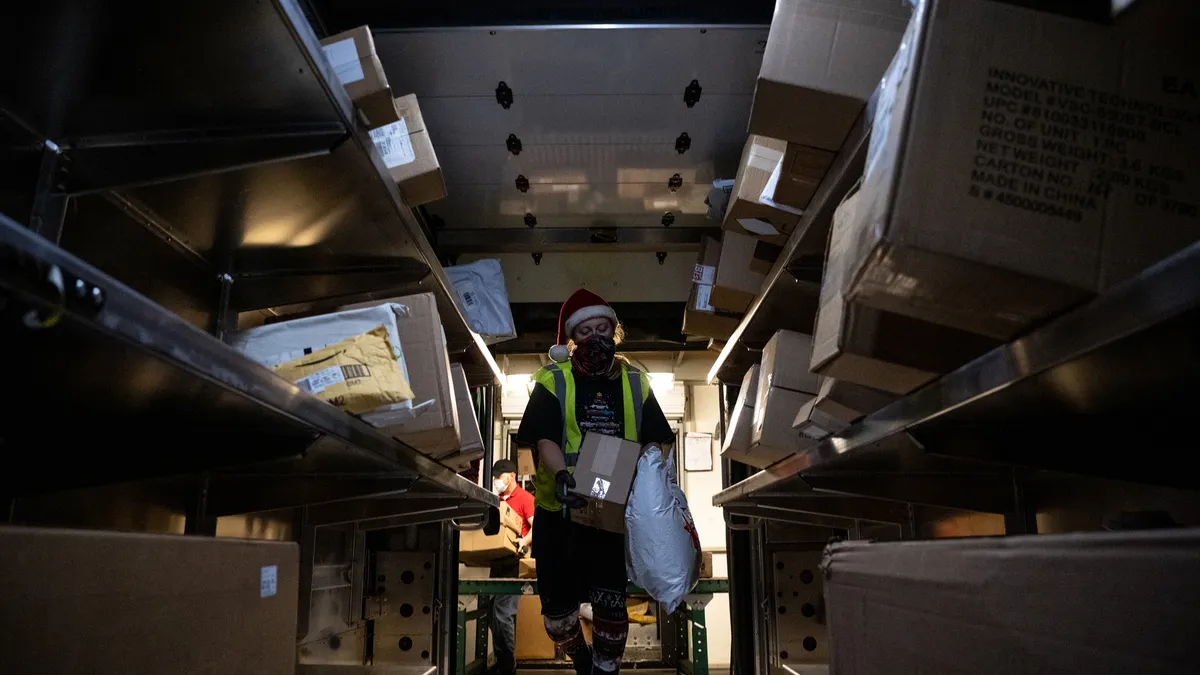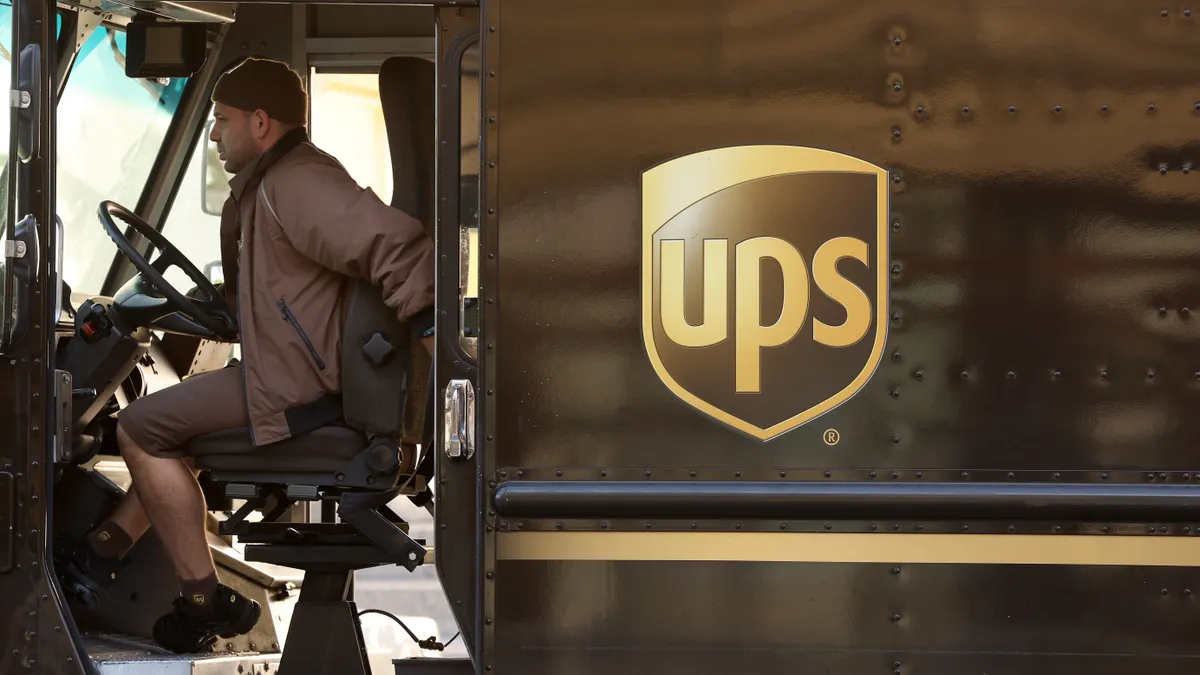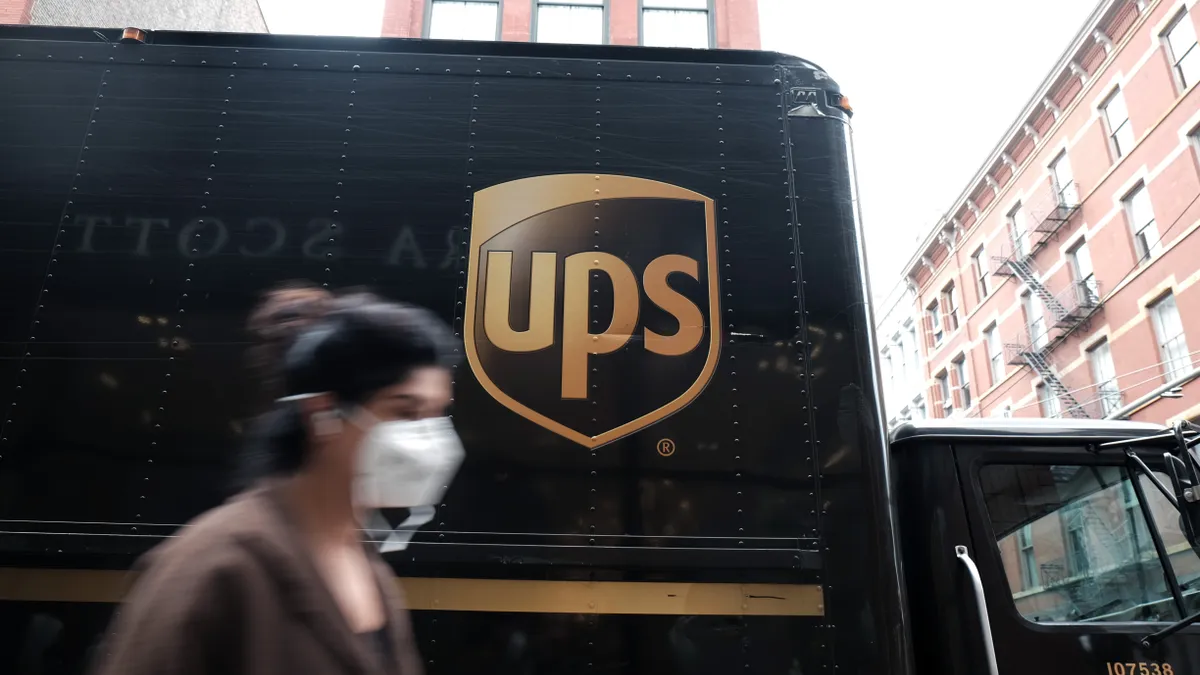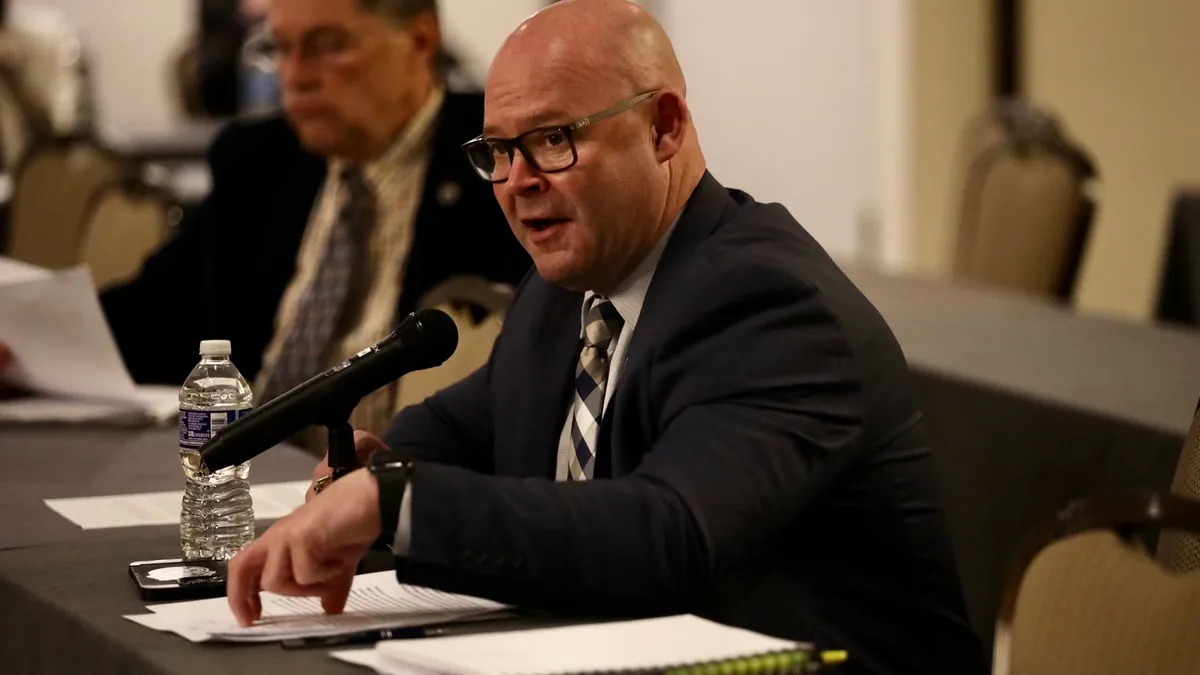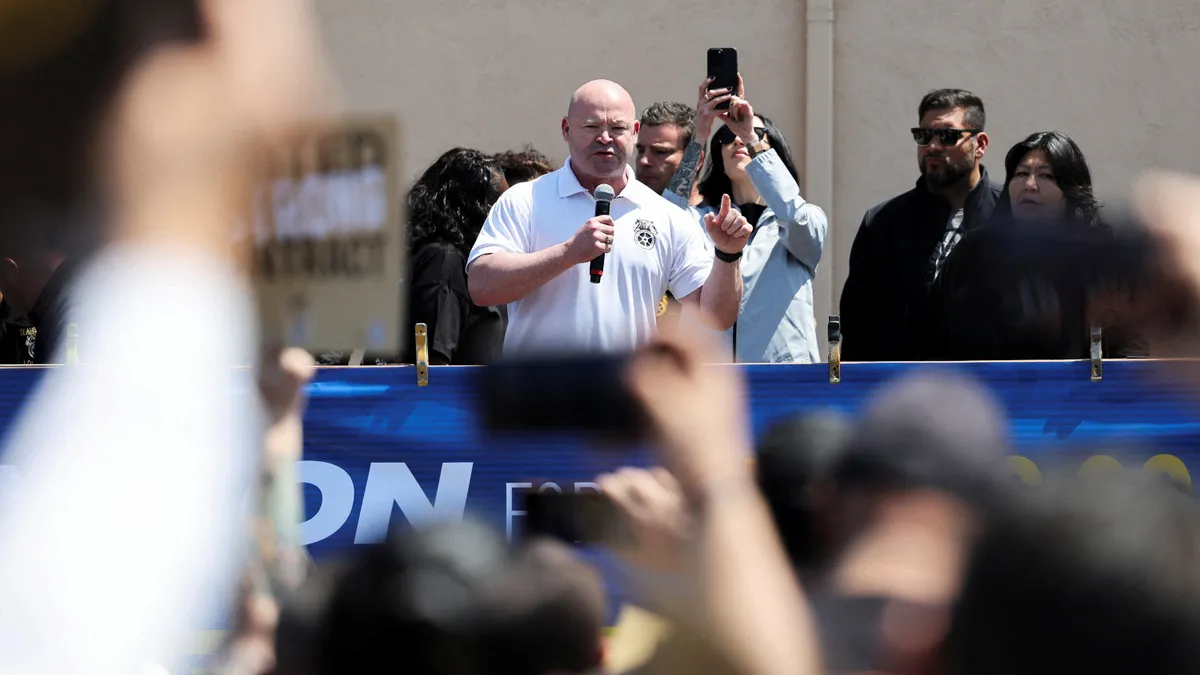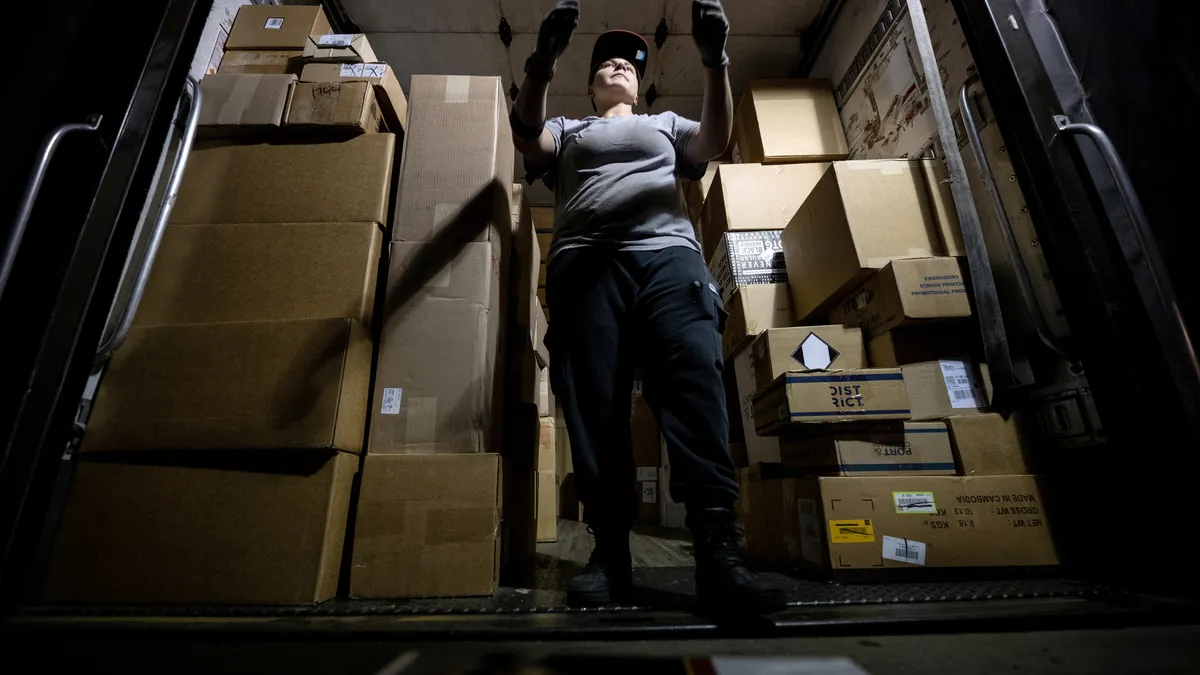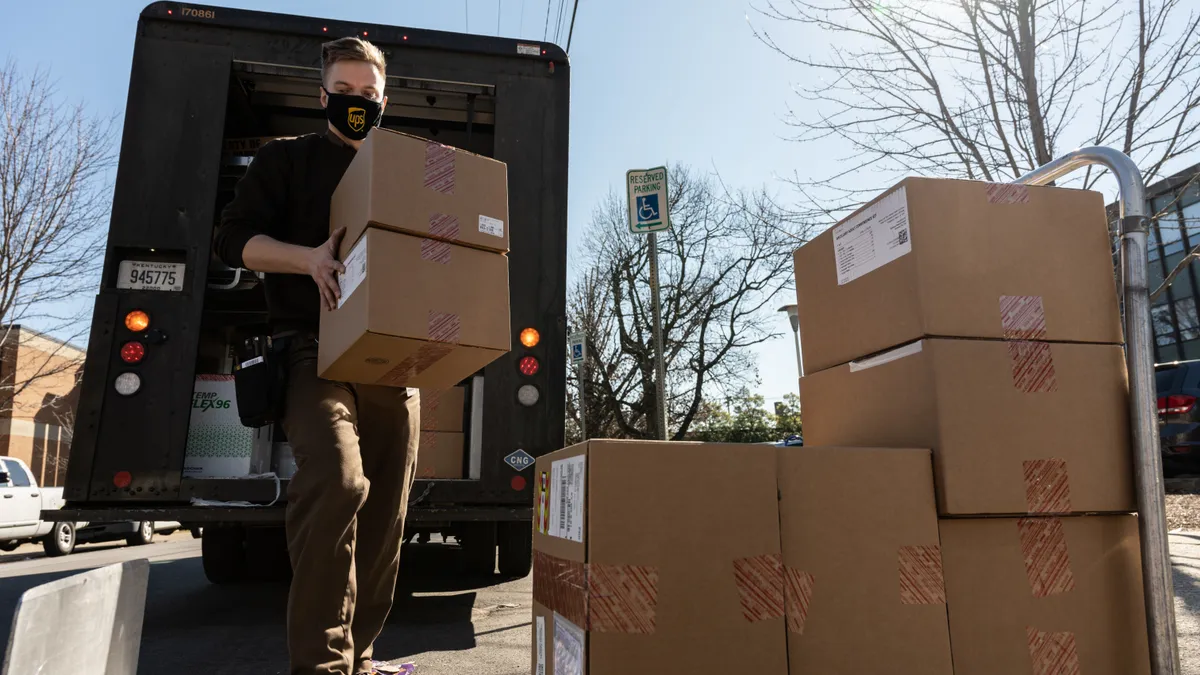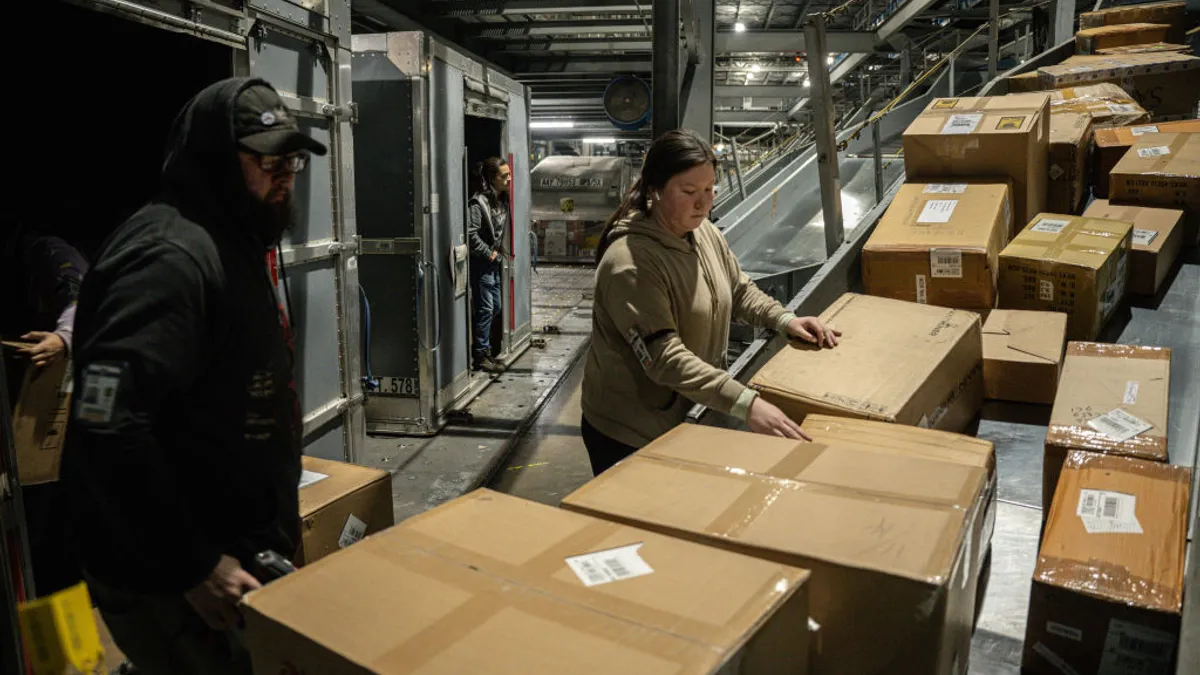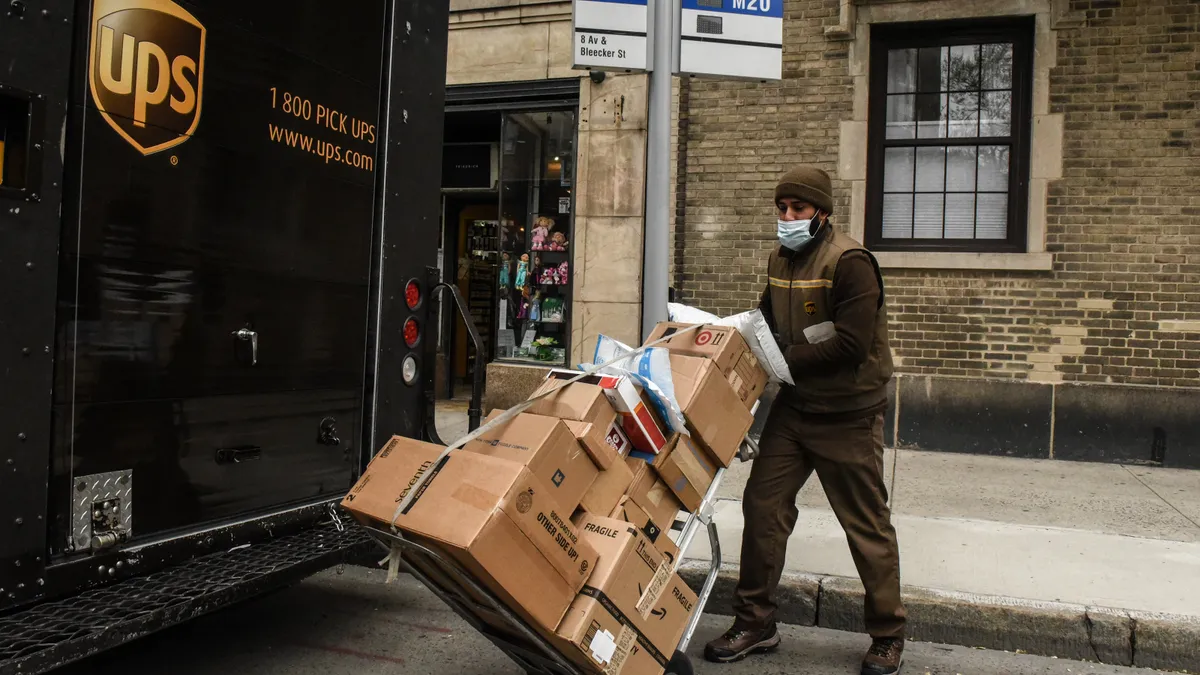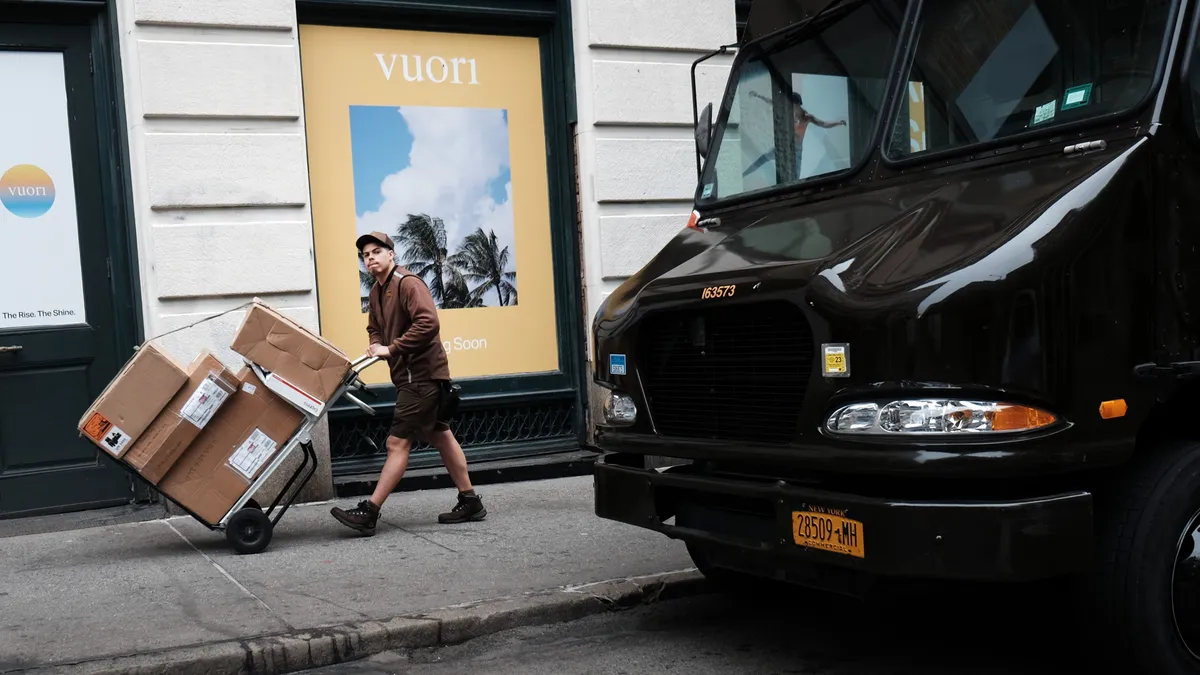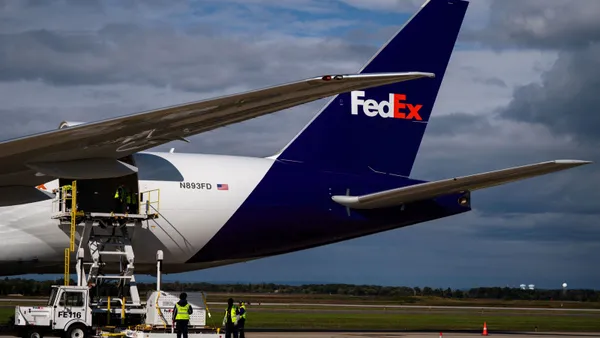Dive Brief:
- UPS employees represented by the International Brotherhood of Teamsters voted 86.3% in favor of the national contract agreement between the company and the union, ratifying the deal for more than 300,000 workers, according to results released Tuesday.
- All local supplemental agreements between UPS and the Teamsters were also ratified, except for a supplement covering members of Teamsters Local 769 in Florida, the union said in a news release. The national deal will go into effect as soon as this supplement is renegotiated and ratified, with negotiators meeting "immediately" to resolve outstanding issues.
- The five-year deal covers U.S. employees in positions such as delivery driver, package handler and mechanic, according to UPS. Differences from the previous contract include higher wages, a smaller share of deliveries that can be outsourced to the U.S. Postal Service and more union influence over technological changes.
Dive Insight:
With the contract's ratification, UPS shippers can rest easy after a contentious, monthslong negotiations process that had many customers fearing a highly disruptive strike.
"We expected negotiations with the Teamsters to be late and loud, and they were," UPS CEO Carol Tomé said on an Aug. 8 earnings call.
Differences over the wages part-time employees should receive emerged as a significant roadblock in early July, less than a month before the existing contract was set to expire. Talks were at an impasse for weeks before the two sides resumed negotiations and quickly ironed out a deal on July 25.
Both full-time and part-time employees will see their hourly pay increase by $2.75 in 2023 in the new agreement.
“Teamsters have set a new standard and raised the bar for pay, benefits, and working conditions in the package delivery industry," Sean O'Brien, the union's general president, said in a statement. "This is the template for how workers should be paid and protected nationwide, and nonunion companies like Amazon better pay attention.”
Although UPS avoided a strike, many shippers proactively diverted packages to other carriers over the past few months to ensure their deliveries wouldn't be disrupted. A combination of FedEx, the U.S. Postal Service and regional carriers gained an additional 1 million parcels daily due to the concerns in Q2, Tomé said.
UPS is now attempting to bring that lost volume back into its network, touting its strong service levels, speed edge over FedEx in several markets and other advantages for shippers.
"It's all hands on deck to win back the volume that was diverted as a result of the labor negotiations," Tomé said.








